What is an Overdraft Claim?
Millions of people in the UK use overdrafts. They allow you to spend more money than you have in your bank account, meaning that your balance goes below £0.00 into a negative balance. But many people don’t stop to think about whether an overdraft is right for them, or consider whether the lender was acting responsibly in providing the overdraft in the first place. The Financial Conduct Authority outlined the following in its consultation paper on overdrafts:
“Overdrafts are primarily intended to provide short-term credit. But our research shows that many consumers use arranged overdrafts regularly over long periods, and so incur charges for prolonged periods. For these customers, an overdraft may not be the best way of borrowing.”¹
Overdrafts can be acceptable if they are used for emergency or unforeseen expenses, or to get through a short-term difficult period (if you get short of cash temporarily). The problem starts when you begin making a habit of using the overdraft – and before you know it, you’re ‘living in your overdraft’. Financial expert, Emmanuel Asuquo, explains:
“They live in their overdraft and are overwhelmed by it. They get paid, and that’s the only day they’re out of their overdraft. Then the bills come and they’re back in it. They look at the money like it’s theirs. Like ‘I have £1,000 and a £1,000 overdraft, so I have £2,000’ – no you don’t. It’s not yours. That money is not yours to spend. It’s the bank’s money – please understand that.”²
When can an Overdraft be considered “unaffordable”?
Your bank statements show a minus balance figure for most of the month – perhaps only returning to a credit balance for a few days after your wages come in – before dipping back down into the overdraft again.
If you are living in your overdraft month after month, you might hear this called ‘hardcore borrowing’ – and it’s not a good thing. But your bank should be keeping a close eye on your overdraft use and making sure you’re not getting overwhelmed by your overdraft. The general expectation (which most banks actually agree with) is that overdrafts should be reviewed at least once a year – as one UK Ombudsman explains:
“NatWest’s competitors, at least, committed to reviewing overdrafts on an annual basis. So while NatWest may have agreed an overdraft without a review date, I consider good industry practice meant that it ought to have checked that terms and conditions of the facility were being met (namely Miss K continued to be able to meet her commitments without difficulty) and that it was meeting its regulatory obligations to Miss K on an, at least, annual basis.”³
We’ve seen examples where banks haven’t done enough to protect their customers against overdrafts being overused and harmful to the customer’s finances:
“Lloyds’s own literature suggests that overdrafts are for unforeseen emergency borrowing, not prolonged day-to-day expenditure. So I think that Mr G’s overdraft usage should have prompted Lloyds to have realised that Mr G wasn’t using his overdraft as intended and shouldn’t have continued offering it on the same terms. As Lloyds didn’t react to Mr G’s overdraft usage and instead continued charging in the same way, I think it failed to act fairly and reasonably.”⁴
Some customers should not have been allowed to have an overdraft at all in the first place (let alone have one and overuse it). In these situations, the bank should be offering a refund of all the overdraft interest, whilst the customer will only need to pay back the money they borrowed:
“Mr S has already paid off the debt all Lloyds is left to do is refund all the interest, fees and charges along with 8% simple interest from when the overdraft was approved.”⁵
I’m not sure if am eligible to make an overdraft claim?
There are many ways you can be eligible to make a claim. You can still claim on an overdraft you no longer use, or if you’ve since changed banks. Usually, a claim can cover the period of the last 6 years. And even if you applied for your overdraft online – without speaking to your bank – lending rules mean it is still your bank’s responsibility to ensure the overdraft would be sustainable. In fact, we have seen an alarming example of a major bank not understanding that the lending rules mean the same standards apply even if the overdraft is applied for online…
Halifax wrote to its customer, Mr B, and said the following, in trying to place the responsibility squarely on the customer’s shoulders:
“When you apply for borrowing via Internet Banking, and choose not to discuss your finances with a member of staff, we assume that you have considered how much you want to borrow and how much you can afford to repay.”⁶
But the Ombudsman in this case was scathing in their correction of Halifax:
“I’ve thought about what Halifax has said. But I’m not aware of anything in the rules and regulations, or the industry codes of practice, which state, or even infer, that lesser standards or a lesser duty of care applies to affordability assessments conducted for online applications. So to be clear and for the avoidance of doubt as the regulated firm here it was Halifax’s responsibility to assess whether Mr B’s overdraft and his limit increases were affordable, notwithstanding the fact this application was made online.”⁷
As that Ombudsman has clearly set out: banks have a duty to ensure overdrafts are affordable, even if the customer applied for the overdraft online without speaking to a member of bank staff.
If you’ve had an overdraft that you used for longer-term borrowing, you may be due compensation.
Apply Now
References:
¹ https://www.fca.org.uk/publication/consultation/cp18-42.pdf paragraph 2.5
² Emmanuel Asuquo ‘Get Your Money Right’ (London: HarperCollins, 2023), page 122
³ https://www.financial-ombudsman.org.uk/decision/DRN5869499.pdf
⁴ https://www.financial-ombudsman.org.uk/decision/DRN-3015911.pdf
⁵ https://www.financial-ombudsman.org.uk/decision/DRN-2856553.pdf
⁶ https://www.financial-ombudsman.org.uk/decision/DRN-3430312.pdf
⁷ https://www.financial-ombudsman.org.uk/decision/DRN-3430312.pdf

Our Unaffordable Lending Claims Process
We realise that claiming against your lender can seem daunting. We aim to make the claiming process as simple as possible. We specialise in affordability claims. Our experienced team will communicate with the lender (and where required, the Ombudsman service) on your behalf. We use bespoke technology to ensure efficient claims handling. Throughout the process, we inform you of claim progress using a “stage process”, so you can track your progress easily. Please remember though, that you do not need to use a claims management company to make your complaint to your lender, and if your complaint is not successful you can refer it to the Financial Ombudsman Service yourself for free.
Step 1
Pre complaint investigation and analysis
Step 2
Formal unaffordable lending complaint made
Step 3
Lender responds with a Final Response Letter
Step 4
If appropriate resolution cannot be reached with the lender, referral to Financial Ombudsman Service.
Our Fees
Our success fee is due only if your bank makes a compensation payout, and is calculated on the amount of the compensation payout
The success fee amount is calculated using a band charging system. There are five charging bands. Each band has a maximum amount that we will charge.
Success Fee Charging Table
| Band | Compensation Payout | Percentage rate the Success Fee is calculated on (including VAT) | Maximum Success Fee in band (including VAT) |
| 1 | £1 to £1,499 | 36% | £504 |
| 2 | £1,500 to £9,999 | 33.60% | £3,000 |
| 3 | £10,000 to £24,999 | 30% | £6,000 |
| 4 | £25,000 to £49,999 | 24% | £,9000 |
| 5 | £50,000 or more | 18% | £12,000 |
Below are examples of how this would work in practice.
| Band | Comp Payout (Lower) | Success Fee (Lower) | Comp Payout (Higher) | Success Fee (Higher) |
|---|---|---|---|---|
| 1 | £100 | £36 | £1,499 | £504 |
| 2 | £1,600 | £537.60 | £9,999 | £3,000 |
| 3 | £12,000 | £3,600 | £24,999 | £6,000 |
| 4 | £30,350 | £7,284 | £49,999 | £9,000 |
| 5 | £55,000 | £9,900 | £100,000 | £12,000 |
If you want to see how much we would charge for a specific amount, please visit our online fee calculator at https://allegiant.co.uk/unaffordable-lending-claim-fees.
Please note that the examples in the tables are for illustration purposes only. They are not an estimate of the likely outcome or success fee.
Cancellation
You can cancel for free at any time within 14-days without giving any reason and without incurring any liability. You can communicate your cancellation by telephone, post, email or online.
You can cancel this agreement at any time after the 14-day cancellation period. However, if a complaint submitted by us is successful, the Success Fee will apply in the usual way.
You can cancel by post: Allegiant Finance Services Limited, Freepost RTYU–XUTZ–YKJC, 400 Chadwick House, Warrington Road, Birchwood Park, Warrington, WA3 6AE; (b) by email: helpdesk@allegiant-finance.co.uk; (c) by telephone: 0345 544 1563; or (d) online at https://allegiant.co.uk/compliance/cancellation.
Genuine Customer Reviews
The Smart Choice For Unaffordable Lending Claim Representation
A trusted name
Allegiant Finance Services is widely regarded as a pioneer in the high cost loan claims management market.
Friendly and experienced advisors
Contactable by email, phone, or post, whichever you prefer
Confidential & Discreet
We will only correspond with you and keep your details secure. We’ll never sell your data.
True Online Application System
Much more than a contact form. With our full online application process you will receive an instant automated decision on whether we can take on your claim
£108 million in compensation - £87 million in cash, £21 million in debt deductions, since 2013
Successfully recovered across unaffordable lending, Scam & Fraud, Car Finance Commission and vehicle write-off claims since 2013
Proven Track Record
We’ve been claiming high cost loan refunds since 2013









